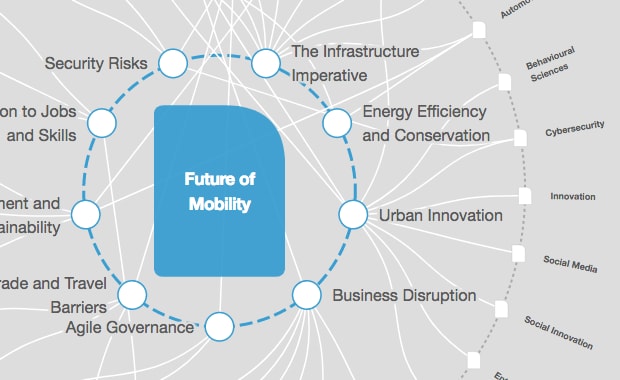Why I ride my bike to work, by the Prime Minister of the Netherlands

High five in the low countries: Dutch Prime Minister Mark Rutte on his bicycle Image: REUTERS/Piroschka van de Wouw
With its sweeping views over the sparkling Hofvijver pond, the Binnenhof – the Gothic castle in the heart of The Hague that houses the States General of the Netherlands – is quite something.
It’s little wonder Dutch Prime Minister Mark Rutte enjoys commuting to his office there. And recently he’s made the journey by bike as often as possible.
“I didn't cycle a lot for 10 years. But for the past two years, I’ve had my own bike again and, when the weather allows, I travel into the office that way,” he told the World Economic Forum.
Cycling craze
The Dutch are famous for their love of cycling. In 2018, the country had more bicycles than people: 23 million to 17 million. More than a quarter of all trips in the country are made by bike and of those, a quarter are for getting work, like Rutte.

He explains why it’s long been such a phenomenon: “The Dutch love cycling because we are a small country. We have to get from A to B. And of course taking a car, yes, is an option, but you have congestion plus the environmental impact. From the old days, almost from the late 19th century, we're used to taking a bicycle.”
Enabled by infrastructure
The country’s flat landscape is perfect for trips on two wheels. But it has also carefully designed its transport infrastructure to promote cycling.
There are more than 35,000 km of cycle lanes and the city of Utrecht is home to the world’s biggest underground bike park.
Rutte admits he was impressed with how well-oiled the system is: “I was amazed how many specific biking traffic lights and biking lanes we now have – and so many more than 10 years ago.
“They’re not only in the city but also in local communities between cities, which makes it very safe and easy, particularly for small children when they go to school.”
What’s the World Economic Forum doing about climate change?
Healthy for people and planet
The health benefits of cycling are well-known: it reduces the risk of illnesses such as diabetes and cardiovascular diseases, and can help boost mental wellbeing.
A 2015 study found more than 6,000 deaths in the Netherlands are prevented each year due to cycling, and it adds six months to the average life expectancy.
This saves the country’s economy more than $20 million a year.
The benefits to the environment are also huge: switching from a car to a bicycle saves an average of 150 grammes of carbon dioxide per kilometre, according to the Netherlands Institute for Transport Policy Analysis.
As Rutte says: “The whole system is nudging people to make use of this very healthy alternative.”
Don't miss any update on this topic
Create a free account and access your personalized content collection with our latest publications and analyses.
License and Republishing
World Economic Forum articles may be republished in accordance with the Creative Commons Attribution-NonCommercial-NoDerivatives 4.0 International Public License, and in accordance with our Terms of Use.
The views expressed in this article are those of the author alone and not the World Economic Forum.
Stay up to date:
Mobility
Forum Stories newsletter
Bringing you weekly curated insights and analysis on the global issues that matter.
More on Climate Action and Waste Reduction See all
Planet in focus: The technologies helping restore balance – and other news to watch in frontier tech
Jeremy Jurgens
November 13, 2025






